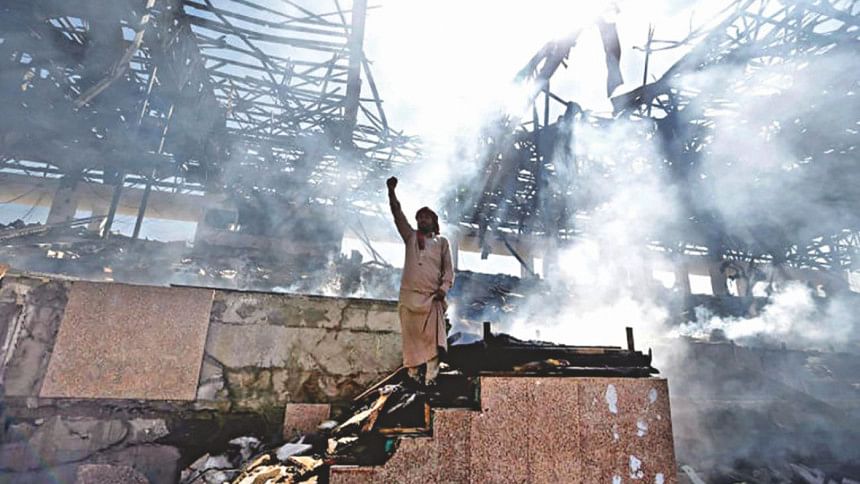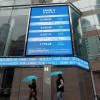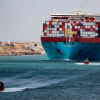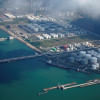The Middle East: It will only get worse

As Saudi Arabia reels from Crown Prince Mohammed bin Salman's crackdown on the kingdom's elite, indications are that the Saudi-Iranian proxy war is heating up. The arrests occurred as Lebanese Prime Minister Saad Hariri resigned in what many saw as a Saudi-influenced move aimed at stymying Lebanon's powerful, pro-Iranian Hezbollah militias and Saudi defences intercepted a ballistic missile attack by Iranian-backed Houthi rebels in Yemen.
While the wave of dismissals and arrests of members of the ruling family, senior officials and prominent businessmen clouds prospects for Prince Mohammed's economic reform plans, prospects of an escalation of Saudi-Iranian tensions bode ill for the rest of the region.
A Saudi-backed military alliance that includes the UAE, Kuwait, Bahrain, Egypt and Sudan appeared to open the door to a more direct confrontation between Saudi Arabia by denouncing the missile strike as "a blatant and direct military aggression by the Iranian regime, which may amount to an act of war against Saudi Arabia."
"Saudi Arabia also has a right to respond to Iran at the appropriate time and manner, supported by international law and in accordance with its inherent right to defend its territory, its people and its interests protected by all international conventions," the alliance said in a statement.
Aware that a military confrontation with Iran could prove disastrous, Saudi Arabia signalled that it was more likely to strike at Iranian proxies. In response to the missile attack, it imposed a temporary air, land and sea embargo on Yemen, a country that is struggling with a humanitarian catastrophe as a result of the kingdom-led 2.5-year-old military intervention.
Some 10,000 people have been killed in the war that, according to the United Nations, has left half a million Yemenis infected with cholera and some seven million on the brink of famine in the Arab world's poorest nation.
Yemen, however, is not the only place that is likely to see escalation because of the increasing Saudi-Iranian tensions.
Lebanon, a collection of religious and ethnic minorities that has yet to cement an overriding national identity but has miraculously maintained stability despite the Syrian civil war on its doorstep and a massive influx of refugees, is teetering following Hariri's resignation.
While there is only circumstantial evidence for Saudi Arabia's role in persuading Hariri, who said he feared for his life amid rumours of a foiled assassination attempt, to resign, he was unequivocal in towing the Saudi line in the announcement of his stepping down.
Iran, Hariri said, "has a desire to destroy the Arab world and has boasted of its control of the decisions in all the Arab capitals. Hezbollah imposed a reality in Lebanon through force of arms, and their intervention causes us big problems with all our Arab allies."
The impression of Saudi influence was fuelled by the fact that Hariri made his announcement not on his Future TV network but in the Saudi capital of Riyadh on the kingdom's Al Arabiya station, whose owner, Waleed bin Ibrahim al-Ibrahim, was ironically among the businessmen detained on Prince Mohammed's instructions.
Beyond holding dual Lebanese-Saudi citizenship, Hariri long headed Saudi Oger, the conglomerate owned by his family, that went bankrupt earlier this year, becoming one of the first victims of the economic downturn in the kingdom as a result of decreased oil revenues.
While there is little doubt that Saudi Arabia is seeking to weaken Hezbollah's strong position in Lebanon, it was also not clear whether that was the sole reason for Saudi enthusiasm about Hariri's resignation. The former prime minister was widely seen as Lebanon's most accommodating Sunni Muslim politician, willing to acknowledge that Hezbollah, largely believed to be responsible for the 2005 killing of his father, Rafik Hariri, was a part of the country's political infrastructure.
By throwing a monkey wrench into Lebanese politics, Hariri has opened the door to Saudi attempts to generate pressure on Hezbollah to choose between being a political party that is subject to government decisions such as non-interference in the Syrian war or an Iranian proxy that engages in regional conflicts. The problem is that in the face of a weak Lebanese state and military, past attempts to cut Hezbollah's fangs have failed.
While Hezbollah has made clear that it did not want Hariri to resign nor did it want to see an escalation of tensions in Lebanon and is seeking a peaceful resolution of the crisis, it may not have control of events. The crisis could lead to the demise of President Michel Aoun, a close ally of Hezbollah, and even worse be part of an effort to provoke a Hezbollah-Israel war.
An international group of former generals, the High Level Military Group, warned earlier this month that a bloody war was inevitable, even if not necessarily imminent.
"Hezbollah doesn't want a conflict to break out at present, given it is still seeking to consolidate its gains in Syria and continue preparations in Lebanon. However, its actions and propaganda suggest that it considers its ability to fight a war with Israel as a given. The timing of such a conflict is likely to be determined by miscalculation as much as decision-making in Iran and Lebanon," the group said in a 76-page report.
Yemen and Lebanon may be the most immediate theatres of Saudi-Iranian confrontation based on recent events, but they are certainly not the only ones. The two regional powers are on opposite sides of the fence in the Syrian conflict, vying for influence in Iraq, and looming in the background is the Pakistani province of Balochistan, another potential launching pad that could be used to stir ethnic unrest in Iran.
Fuelling tensions, Israeli Prime Minister Benjamin Netanyahu described Hariri's resignation as a clarion call for confrontation with Iran. Netanyahu said the resignation was "a wake-up call to the international community to take action against Iranian aggression" and warned that "the international community needs to unite and confront this aggression."
None of this bodes well for the Middle East. Not only does it risk escalation in those countries in which Saudi Arabia and Iran are battling it out through proxies, it also risks fuelling sectarianism in a part of the world in which minorities are on the defensive, relations between Sunni and Shiite Muslims are frayed, and the cost of conflict and war is taking its toll on civilian populations.
Dr James M Dorsey is a senior fellow at the S Rajaratnam School of International Studies, co-director of the University of Würzburg's Institute for Fan Culture, and co-host of the New Books in Middle Eastern Studies podcast. He is the author of the book The Turbulent World of Middle East Soccer among several others.










Comments